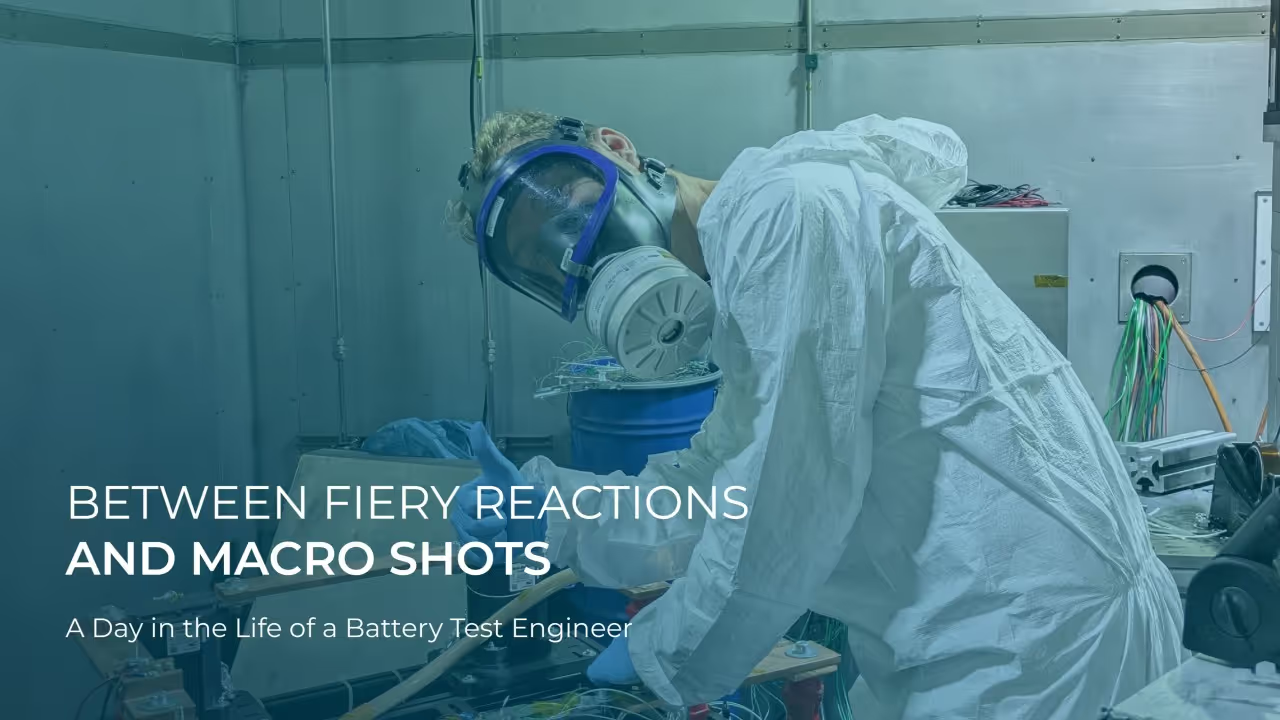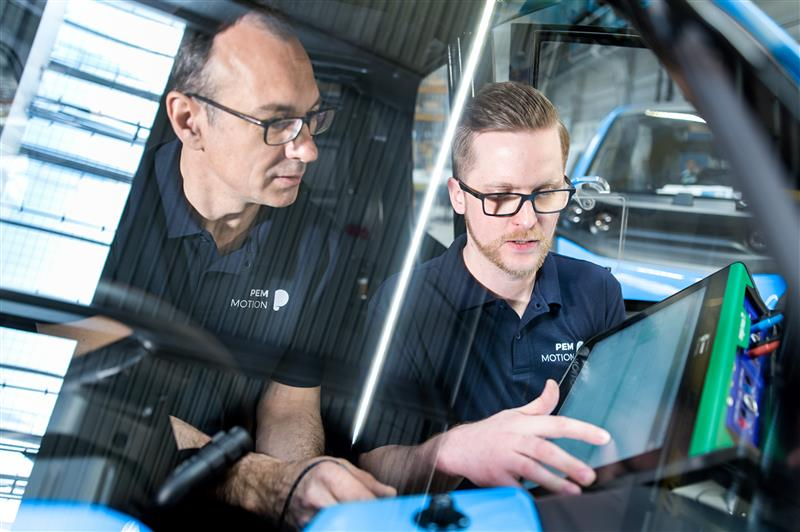Between Fiery Reactions and Macro Shots—A Day in the Life of a Battery Test Engineer

Between Fiery Reactions and Macro Shots—A Day in the Life of a Battery Test Engineer
In the world of batteries, where flashy innovation ideas often take the spotlight, there’s one person who only trusts what can be measured and proven: Nico Gossen has been conducting battery tests at PEM Motion for years, delivering hard facts on how cells behave under stress. At the Battery Testing Center in Aachen, the limits of safety and performance are tested—often pushed far beyond the norm. Here's a behind-the-scenes look at a career that’s as intense as it is intriguing.
What does a typical workday look like for you?
“It’s diverse—but it always starts with the same ritual: First, I get an overview. Which battery cells are scheduled for testing today? Have they been logged, photographed, labeled? Everything must be properly documented before anything else happens.
Then we bring the lab to life. All devices are powered up—PCs, cameras, data loggers … it’s like a technical wake-up routine. Next, we set up the test rig and get the test underway.
On average, we complete around ten battery tests a day. At the same time, we’re already prepping the next batch of cells—charging or discharging them so the testing flow remains smooth.
But the day doesn’t end there: In the afternoon, if there’s time, we work on new test setups—developing, tinkering, organizing. That’s the creative part of the job.”
What do you enjoy most about your work?
“Definitely pushing batteries to their limits! It might sound a little extreme, but it’s genuinely fascinating to see how cells react under different conditions. I’ll admit—there’s a bit of a thrill when a battery explodes. Some people spend a lot of money on fireworks just to get a bang—we get that as part of the job.
I also really enjoy the creative, problem-solving side—developing new test procedures tailored to each customer’s needs. That takes brainpower and experience.”
Are there parts of the job you don’t like?
“Well, working with toxic substances, smoke, and heat isn't exactly fun. And every day, I must put on a full-body protective suit and a heavy gas mask. There are no cutting corners, nothing happens here without the right safety gear. You can’t just ‘quickly do something’ without suiting up. It can be annoying, sure, but it’s necessary.”
Why is your work so important?
“Sometimes customers ask for test results daily—that really shows how crucial our data is for their development process. Without our tests, they’d be taking on far more risk—or worse, not even be aware of the risks. In the worst case, that could lead to serious consequences in real-world use. We provide the facts that form the foundation for safe, high-performing products.
There’s also a common misconception that battery testing should only happen toward the end of development, right before market launch. That can be an expensive mistake and might mean having to take several steps back. To put it simply: Our approach of ongoing, development-accompanying testing helps customers save time, money, and a lot of nerves.”
What’s essential for you to do your job properly?
“Protective equipment, absolutely. But also, high-quality measurement tools and good cameras. And we rely heavily on our well-equipped workshop. The custom parts we create with 3D printers or milling machines are often essential for specific test setups. And most importantly: our well-coordinated team. Without them, none of this would work.”
Tell us more about how you work as a team.
“Basically, everyone can do a bit of everything—and that’s a good thing. It means we can easily step in for each other when needed. But of course, each of us also has our own focus. One person takes care of mechanical design, another focuses on electronics, someone else handles procurement or quality assurance.
And then we’ve got our student assistants—they do incredibly valuable work for us. They take photos, measure cells, and document everything before and after each test. Without their support, our workflow wouldn’t be nearly as efficient or structured.
At the end of the day, what matters most is strong coordination within the team. Everyone plays a key role and is an essential cog in the testing process.”
Conclusion: A workday full of smoke, sweat, and sharp thinking—battery testing is a profession that’s a far cry from your average engineering desk job. It’s high-tech work that demands improvisation skills and constant risk awareness. Precision, realistic risk assessment, and tight team coordination are crucial in this field. Battery test engineers play a vital role in ensuring that energy storage systems—from home batteries to electric vehicles—are safe and reliable.





